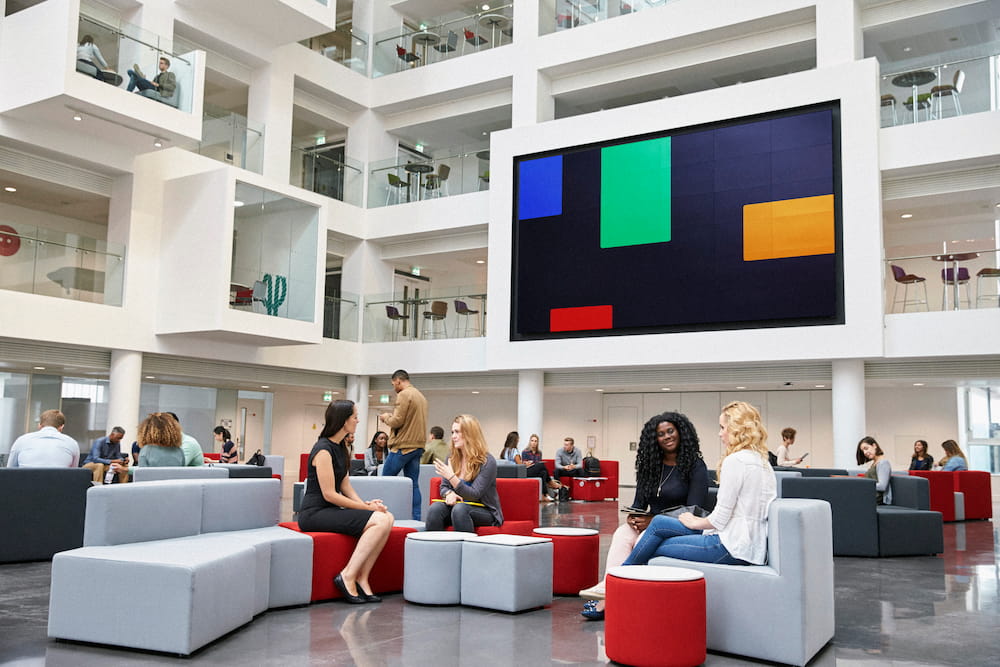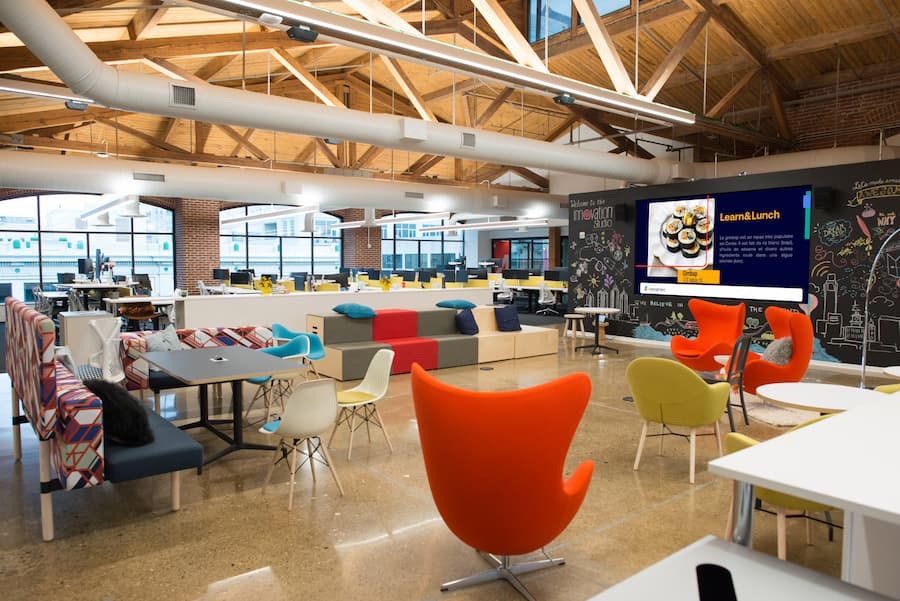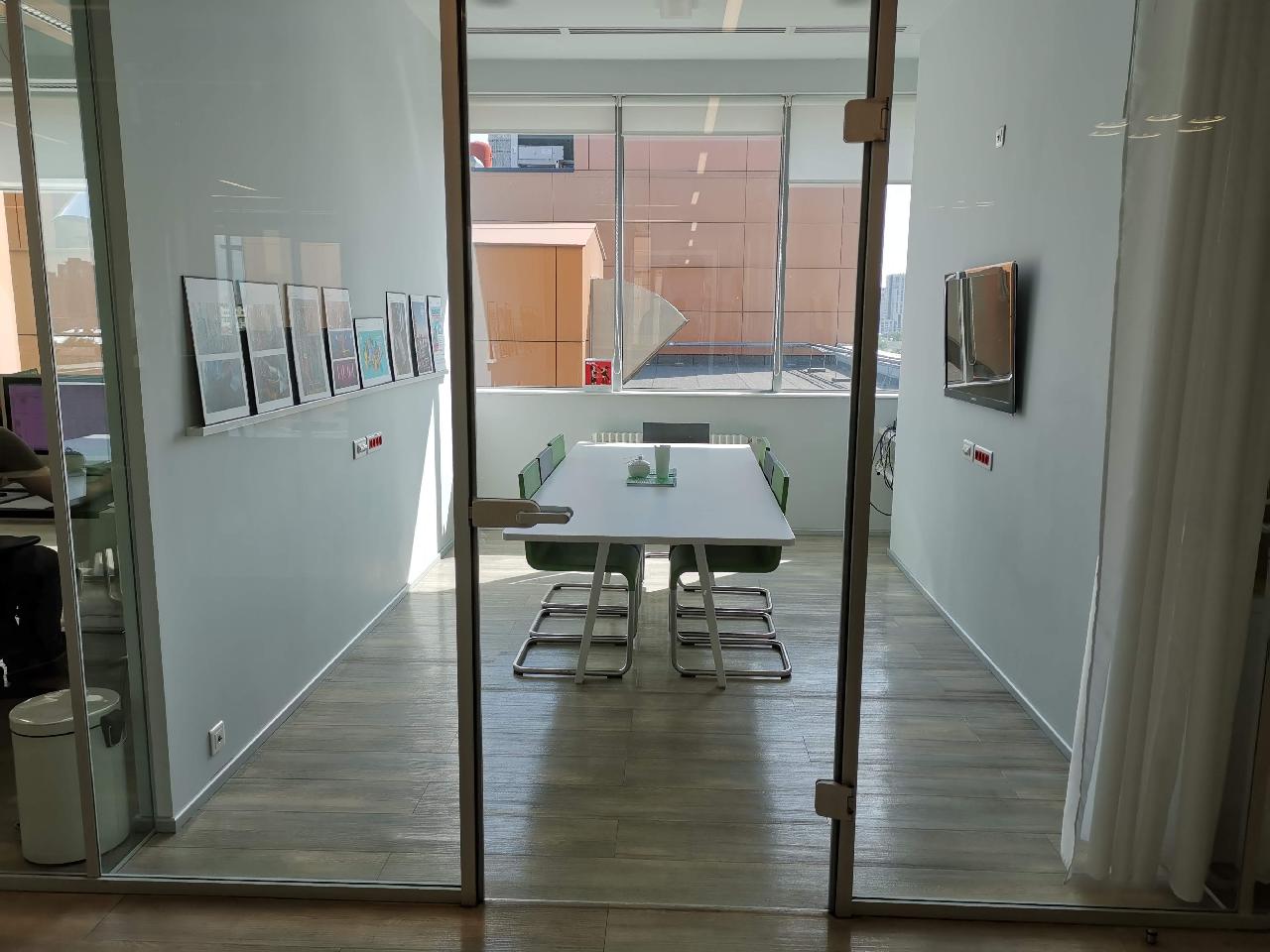For large groups, internal communication plays a fundamental role in the deployment of the company project. Through it, the employees are informed and the right messages are delivered, building commitment and pride.
However, between the national and regional offices and the local branches, information may be lost and there may be a feeling of distance for the teams in the field, not always equipped with IT tools. It is to combat this loss of information that the value of digital signage becomes clear and is naturally integrated into an internal communications plan that is both global and local.
Additional internal communication tools
With the proliferation of communication channels, the challenge is to build an omnichannel strategy that will make the shared information complementary. As regards internal communications, it is common to use email, the corporate social network or a messaging application. Sometimes, there are more traditional tools such as paper display with posters and flyers sent through the post. While these tools are useful, their use remains fragmented, difficult to control, and to update. And besides, not all employees are exposed to them in the same way.
Few channels have the power to reach all the audiences and occupations of a company. Communication screens have this strength. They benefit from the flexibility and adaptability of digital channels (updated in real-time through RSS feeds, data from a CRM, an intranet, or social networks) while remaining visible to unconnected employees. It is a complementary, inclusive and sustainable solution that can be installed anywhere.
Deploying a “glocal” communication strategy
Some information needs to be shared quickly with all employees in the group. This is the case for changes in legislation, health emergency rules, terrorist attacks or accident alerts, or urgent and important information. To meet this challenge, screens are the preferred communication channel. The head office can relay information to all of its screens in just a few clicks, anywhere in France or abroad.
Moreover, other information is of interest locally. Using a “glocal” approach (global and local at the same time), a local manager can thus control the screens and disseminate information to their staff. National corporate messages can be broadcast from the head office and local communications about a particular department, city, or site. A more efficient and faster approach than communicating in an official email, especially to reach employees who do not have a computer workstation.
Customer case: SNCF group deploys coherent and reliable internal communication through its internal communication displays
In the Grand Est region, the SNCF has 3,350 workers, of whom only half have a computer. For communications with train drivers, station staff, sales representatives or maintenance workers, digital signage is the most suitable solution.
In collaboration with Cenareo, SNCF has equipped its sites in the Grand Est with 95 screens to enhance the sense of belonging to the company, to provide information on the latest news, and to develop engaging internal communications around the group’s strategic project. The head office broadcasts messages to all screens and each manager broadcasts information locally based on their own news and hot topics.
Thus, 80% of the fleet receives new content each week, a good illustration of the take-up of the solution by the stakeholders. Given the transformations underway, it is essential to create pride and commitment through direct and interactive communication.
Communicating through screens is a great lever for boosting efficiency for large organizations. Thus, they can develop an inclusive communication strategy that is suited to all the teams and especially to mobile and unconnected staff. A way of delivering consistent messages to reinforce the company brand, values, and corporate project forming an integral part of each employee’s daily routine.





















